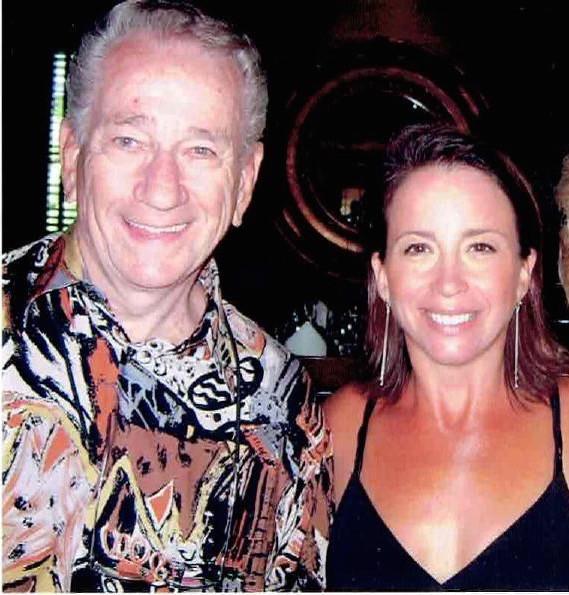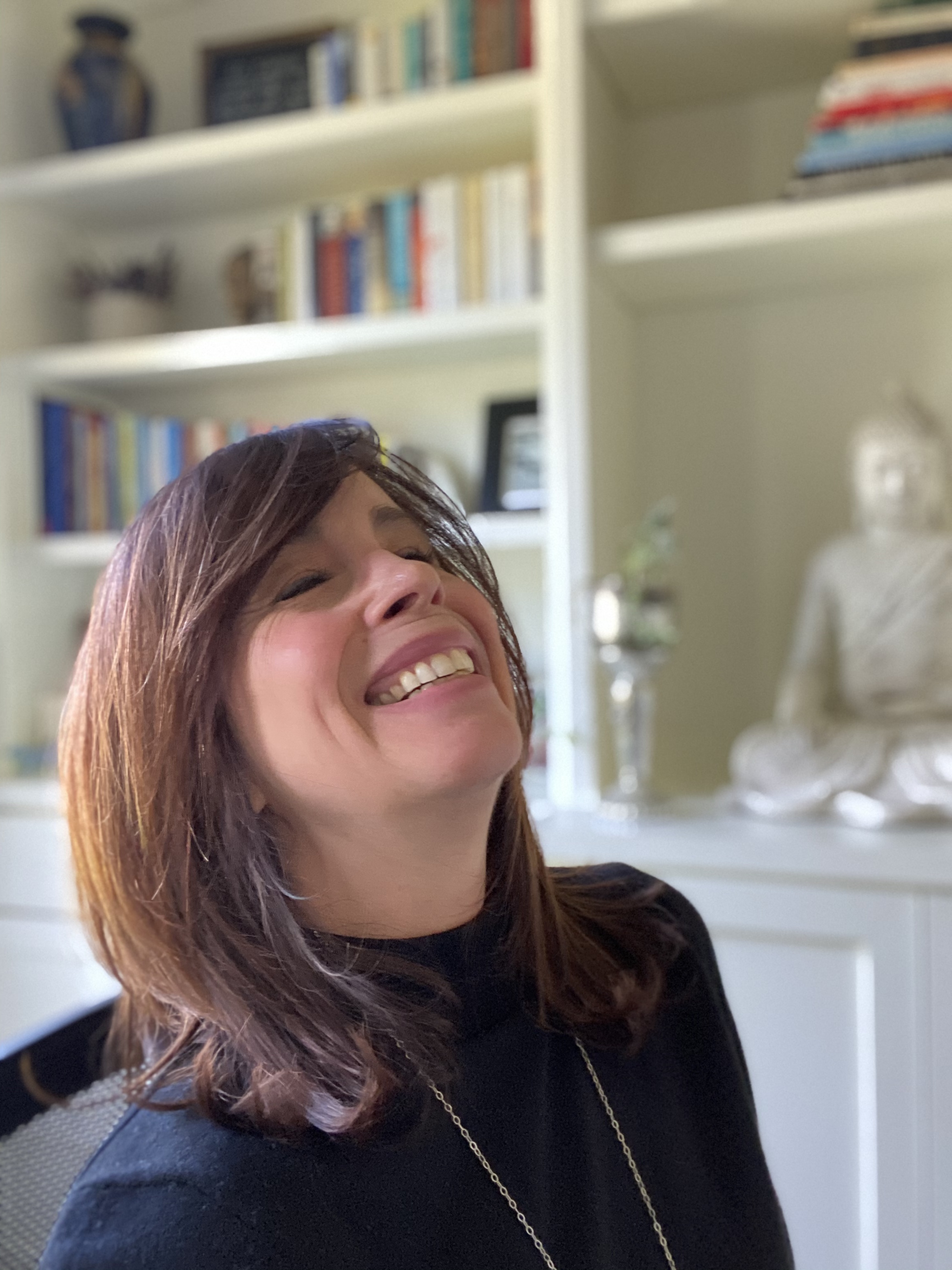
Like any good death, the death of my father changed my life irrevocably. He was my champion; my steadfast advisor. A central planet in my universe to which I was tethered, so no matter how far I roamed I was still invincibly, comfortably connected to my safe haven.
As a young girl, I intended to marry my daddy one day. It was an entirely rationale plan in my five-year-old mind. The only thing I couldn’t figure out was where my mother was going to live. I didn’t want to just cast her out. There had to be a role for her. I remember feeling a sense of elation when I determined that she could be the nurse of the household. My dad was a doctor, so mom could be the nurse. Ta-da! Problem solved.
I slept peacefully in this fantasy until I was seven or eight years old.
Around this same time, my father opened a private medical practice and I would spend my Saturday’s in his office in the back, sitting in a large black swivel chair at a desk that seemed to infuse anyone who sat at it with importance. My feet couldn’t yet touch the floor so I was able to hold onto the left side of the desk and spin the chair 180 degrees. Which I would do as soon as my parents shut the door behind them. When that got old, I would pluck at the typewriter, making up stories in triplicate with the carbon copy paper that, although smudged all over my fingers and thus inevitably my face, delighted me to no end. I thought it was magical to peel the pages apart and find three copies.
My father was a Doctor of Osteopathy and a Surgeon. These were simpler healthcare times when one doctor treated a host of conditions and often the entire family. On any given day, Dad would stitch up someone’s finger in one room, treat a flu in another and set a broken arm in the next. Over the years, he attracted more and more elderly people to his practice. There was something reverent that transpired between my father and his patients, most especially the older ones; it was palpable and it moved me, even as a young girl.
My dad was a healer. It was important work. And long after he retired, he would still be the one everyone turned to for medical advice. His thoughtful, tender approach put them at ease, no matter their circumstances.
It was a year before he died that I thought to interview both my mother and my father, using the Proust Questionnaire. When I asked him about his proudest accomplishment, he said without hesitation: “Being a doctor.” His clear steel blue eyes brimmed with tears as he continued: “It fulfilled me, working with patients, in a way nothing else did.”
I was there when he died and in the month leading up to his death, something he faced with a vulnerability and a grace I will always remember. Hospice had been set up in the house and those angels of mercy did everything they could to prepare us for his crossing. But nothing prepares you when you witness your first death. And I was wholly unprepared but profoundly changed by watching his spirit leave his body. As I was, too, by the miraculous sign that immediately transpired in the moments after, when a dozen or so sea lions appeared, playing joyfully across the lake from my view. The sea lions were an urban legend to us up until that point. Something we had heard about when we moved my parents into the home ten years before, yet in all of that time had never actually seen.
Days later and still shrouded in her grief, my mother walked me around the house with a sense of importance, wanting to impress upon me the history of everything she held dear. “This was given to your father by the Kopinski’s when they could no longer afford to pay for their medicine,” and “Do you remember this? Mrs. Gardner gave your father this when her husband died and dad forgave their entire balance due.” Everything in his office and on his desk was a gift with similar significance. I looked around at the pieces that had been so prominently displayed in our home since I was a child and put my hand over my mouth, letting the tears dropping silently.
I had no knowledge of these stories until this moment. My father, a man I had already held in my heart as someone with epic proportions of compassion, was clearly a hero to more than just me.
Like any good death, an invitation follows to more closely examine your own life: Why am I here? What is my purpose? How can I lead a more fulfilling life? As a result of my father’s example, I began to question everything I previously considered a successful life. The words of Emerson pulled at me: “…to know even one life has breathed easier because you have lived, this is to have succeeded.” My father had achieved this. How could I?
It was the beginning of a seven-year spiritual journey that cracked me wide open and begged me to put my pieces together in a new way.
When I looked back on everything I had done until that point, I realized that none of it was truly me. It was as if I had sleepwalked through the past 25 years of my life. Despite having had much financial achievement throughout my career; despite the titles and the cache of important, famous clients and the travel; despite all of the trappings of what we Americans deem as metrics of success – I felt completely, utterly devoid of fulfillment or contentment.
Everyone’s journey to their personal truth is unique to them. For me, it necessitated long walks in the woods where my mind was silenced and nature embraced my brokenness and somehow held me together. The answers to my questions would float into my mind, ethereally, and I would come home and write them down. Bit by bit I was graced with ways in which I could create a life that resonated with who I truly was, and as each piece of the puzzle fell into place, my clarity and conviction cemented it into a bigger picture.
Eventually, there was only one piece missing from my vision, and it was a significant one: How could I make the life I was creating somehow more than me? I wanted to give back in a meaningful way and right from the start, not merely when I had the means to do so.
The answer came as I ruminated on the many times I, or someone I knew and loved, had fallen down in life, unexpectedly facing a crisis. In those moments, and there were many, I felt alone, helpless and entirely devastated that I couldn’t find a way to fix it or help. I had already decided to write about these true stories to offer hope to the person going through something similar, but it finally occurred to me that I could help financially in these times, too. Like my father had demonstrated so beautifully, this could be the way I could make someone else’s life a little easier just when they need it most. That week, as if I were being guided, I put together the structure that would channel half of my profit into a giving fund.
Two years after my father died, during a particularly challenging month, he visited me in a dream. I was overwhelmed with the new business I was building and feeling like giving up. I had been taken down countless times by my own fear, doubt and insecurity, and this time I didn’t know if I wanted to get back up again. In my dream, we were in the home I grew up in. I was looking out the window at a cardinal on the fence. My father walked over to join me and said: “So, you are afraid.” “Yes!” I exclaimed and started to cry. He put his arm around me and said: “Kerrie Lynn, there is nothing to fear. This is how it works: When you decide that you are going to build something that serves others, you are supported. It’s like getting on a train. You may not know what the next stop is, or even where you are ultimately going, but if you have the passion to create something bigger than you, then all you really need is trust that you will get there.”
That dream changed everything for me. Yes, I was still utterly capable of being riddled by my fears and insecurity; yes, I was still only making enough to cover my meager overhead; and yes, I have to talk myself into “trust” nearly every day.
But the voice of my father stays with me, urging me on in my darkest moments and in the silence of each morning when I rise before dawn to write. He is still my steadfast advisor and my champion.
I know now the power of the universe conspiring with you, how love truly does transcend death, and that a hero never really dies.
To laugh often and much; to win the respect of intelligent people and the affection of children; to earn the appreciation of honest critics and endure the betrayal of false friends; to appreciate beauty; to find the best in others; to leave the world a bit better, whether by a healthy child, a garden patch, or a redeemed social condition; to know even one life has breathed easier because you have lived; this is to have succeeded. ~ Ralph Waldo Emerson

